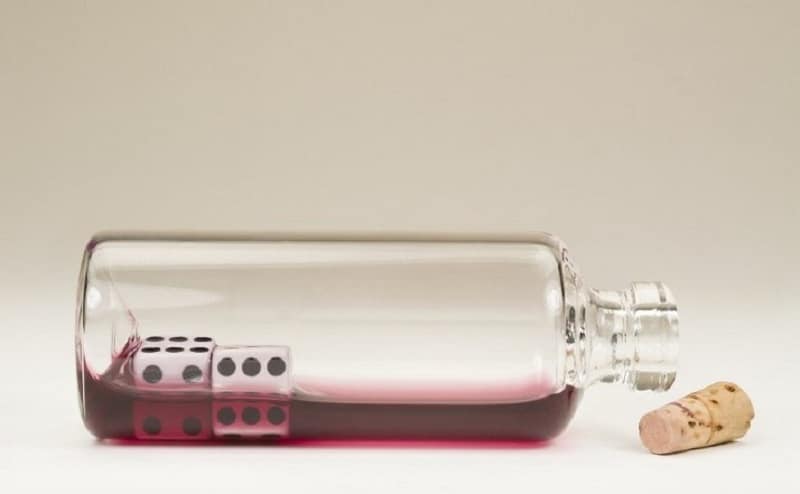Addiction is a relapsing brain disease. It involves a person’s motivation system, which is working in an altered way. Substance abuse is the most common fixation type, but there are also other kinds of obsessions such as food, gambling, computer games, sex, workaholic tendencies, and more.

What Is Addiction?
Understanding addiction can be pretty hard when looking at it from a subjective perspective. Outsiders tend to criticize or judge addicts, thinking that it is their fault for getting stuck on certain issues. Well, there’s more to it. Things are not as simple as they seem.
To put it in simple words, a dependency happens when someone cannot stop doing something that is hurting them, as well as those surrounding them. Not only drug or alcohol abuse are considered fixations. Any other type of action that affects your health or well-being can be seen as addictive. For example, addicting games can be harmful or even deadly in some cases.
Therapists say that usually, there are some hidden causes behind any form of addiction. These are mostly emotional factors that have a huge negative impact on vulnerable individuals. Getting lost in alcoholism or even drug abuse might be the consequences of a sentimental impasse or a nervous breakdown.
Addiction is the only way some people know how to cope with difficult times. You might say that drug addiction is the result of some poor choices. Even though this is somehow true, this issue is a combination of personal choices and external factors.
Bottom line, addiction is a chronic disease and must be treated accordingly. Bad habits can become an addiction. Some people try different substances but don’t develop a fixation over them. How does this happen? It is probably because they don’t have to deal with any significant life problems.
There is, however, a difference between habit and addiction. The first one is done by choice while the second one involves a psychological element. Usually, a person who abuses certain activities or substances is unable to control it or stop it.
Why Do People Become Addicts?

There are plenty of reasons for why people have certain urges that are dangerous for them. We have put together a list with the most common motives for which people develop certain addictions:
- Curiosity. Many individuals that struggle with addiction started like this. They were curious about the sensations, and soon after that, they couldn’t control it anymore. This is especially the case of teenagers and youngsters who try drugs because it is cool.
- Social acceptance. Young people are struggling to create their identity. They are still searching for a purpose in life as well as carving their personalities. Some of them might try drugs only to be accepted inside a certain social entourage. Peer pressure plays an important role in all this.
- Financial problems. A good example of a vicious circle can be gambling problems. If you are dealing with money problems, and you are trying to earn more in a fast manner, you could end up being an addicted gambler. This will not solve the main cause; it will probably worsen it.
- Emotional problems. Things like an ugly breakup or a close one’s death might be a disruptive factor that can increase someone’s vulnerability in front of addiction. Traumatic events are sometimes responsible for their victims’ bad choices.
- Dysfunctional families. Studies have shown that individuals who come from an unhealthy family background are more likely to develop some addiction.
Other powerful causes are medical and physical histories:
- Psychiatric conditions. Those who suffer from psychological diseases such as depression, anxiety, and bipolar disorder, are more vulnerable in the face of addiction. They feel overwhelmed, having to solve a lot of anger issues. They think of life as a burden, and they see drug or alcohol abuse as a reliable solution.
- Genetics. Genes are crucial when studying causes of fixations. Children with addicted parents are more likely to abuse substances when they grow up. More than 60 percent of those who struggle with alcohol abuse come from alcoholic
Common Forms of Addiction

- Alcohol abuse. No matter how you put it, alcoholism is a disease. There are some signs that you can detect in people even before they are diagnosed. Hiding drinks, wanting to drink more, losing control, are all symptoms of alcoholism.
- Drug addiction. When it comes to drug abuse, we are not talking only about illegal substances but also about prescription medication. Some pills such as Vicodin are meant to help the patient’s health. Instead, they started to become drugs that create fixations. Those who don’t have the necessary money to procure real drugs use paint and glues as a drugging method.
- Smoking. Nicotine affects the brain cells. Even though many people are aware of the risks, they still smoke and don’t even try to quit, or they say they cannot control it. Tobacco is addictive, so, people who smoke will eventually become fixated on this bad habit. Smoking is the number one cause of lung cancer and other dangerous respiratory diseases.
- Substance abuse. This refers to other substances besides drugs, such as painkillers or sleeping pills. This addiction is manifesting itself in different forms. For example, when someone is taking a higher dose than that prescribed by the doctor can be a sign of substance abuse. When he/she is taking these medications for a long period is another typical symptom of this kind of fixation.
- Heroin addiction. There are approximately 9.2 million heroin addicts on the planet. Heroin is a type of opioids. Heroin addicts like to inject it into their veins. This is the riskiest way to do it. Other methods are smoking, snorting, and even suppository. Injection gives the highest addiction because it has immediate effects. Users say they feel a wave of an adrenaline
- Gambling issues. Pathological gamblers can also present different forms of psychological conditions such as depression or anxiety. The most typical gambling problems are bingo games, lotteries, casino gambling, races, and more.
- Food disorders. Anorexia, bulimia, or compulsive eating are all food disorders. Some say that these might be initiated by the fact that nowadays we have a lot of foods available, especially unhealthy ones. Specialists think that most of these conditions have other hidden cases. Psychological and emotional struggles are the ones that might cause the appearance of these diseases. Women are more likely to develop food problems because of their lack of self-esteem.
- Computer games. More and more parents are becoming aware of the video games’ negative effects. Lately, many pediatricians recommend adults to discourage their children from playing these games. This is not a problem only for kids. Adults can also become addicted to video games. So much, that there were even isolated cases of death (players spend so much time in front of their screens that they forget to eat and even sleep).
- Sex addiction. This is a behavioral type of addiction. Some say that this is just an increased desire for intercourse. In fact, these addicts fail to control themselves when it comes to having multiple sexual affairs. This type of addiction can have a lot of negative consequences such as losing meaningful relationships, arrests, and even a low level of self-esteem.
- Workaholism. Nowadays, we live busy and messy lives. Many people don’t reach for that desired life balance. Usually, workaholics try to run away from feelings that consume them. When you are so preoccupied with work that you lose touch with your dear ones, it might be a sign of an early excessive work issue.

Types of Addiction Treatment
Psychotherapy
These sessions will help the patient to deal with cravings as well as avoiding any type of harmful substance or fixation. Relapses often happen among addiction patients. This is why enrolling in a therapy program is an effective treatment for almost any kind of addiction. There are multiple forms of psychotherapy:
- Individual therapy. One-to-one sessions can be scheduled a couple of times per week, depending on how severe are a person’s problems. During the first few appointments, the therapist will develop a treatment plan, and both the medic and the patient will get to know each other better.
- Family counseling. In these types of sessions, besides the actual patient, there are also other participants such as significant people in the addict’s life. They can bring anyone they feel comfortable with like a parent, a spouse, other relatives, etc.
- Group help. These groups are held by clinical professionals and offer the clients a great opportunity. They will be able to explore problems while being supported by other people with similar issues.
Rehab
Addiction treatment programs may vary from a case to another. Nowadays, there are specialized rehab treatments. These are also called “niche” programs.
- Women/men rehab. Some clinics are gender-oriented. They offer women a much safer place to address their issues while recovering from certain It is important for them to feel in a safe environment, especially for those who have had sexual abuse experiences.
- Teen rehab. When it comes to adolescents, the reasons for their abuses are different compared to those of adults. As such, they will need special treatment. Usually, these healing centers also involve the teen’s family.
- Dual diagnosis programs. These are different than other programs because they address people with both addictions and mental illnesses. Being diagnosed with dual conditions, the risks are much higher for a relapse. Both professional treatments and therapy are applied in this situation.
- Holistic rehab. Holistic means that pills and medications are not involved in the healing process. Things such as yoga, healthy nutrition, acupuncture, and meditation are the ones that are used to treat the patients. Even though these might work for some addicts, they might not be as powerful as other treatments.

Dealing with A Relapse
We all must understand one thing: relapsing is not necessarily a sign of failure. Certain triggers might be involved in someone’s fixation recurrence. A thing such as a place or even a smell can remind them of their previous lives, and make them stop their sobriety period.
Families are the one who should help the relapsed person to get back on the right track. When an individual gets stuck during their recovery process, and they also deny having a problem, they might be on the verge of relapsing. From this point of losing control is just a tiny step.
Stand by your loved ones if they are dealing with this kind of problems. Be firm and don’t let them take the same vicious path as they previously did. Also, encourage them by showing them you care. A good way to do this is by setting a good example. The chances are that if you live a healthy and balanced life, they will start recovering quicker.
On the other hand, you shouldn’t push them to their limits. Don’t avoid the problem either. Find a middle way, a compromise, to deal with this problem. If you make them feel guilty, it will only make it worse. Dealing with addiction can be rough, especially because other people will probably stigmatize you.

Final Words
Addiction is a serious thing. This is why doctors diagnose it accordingly. If this is also your case, you should prevent other complications by taking care of yourself. Medics, families, friends, they can all help, but you are the one who needs to make a change for the better.
Going to therapy is key. In between the sessions, you should do your “homework”. Think about the real reasons for your behavior. The easiest one will be that you are doing this for pleasure. Think harder! There are also other hidden motives for which you are doing this. Most probably, the main one is emotional distress.
